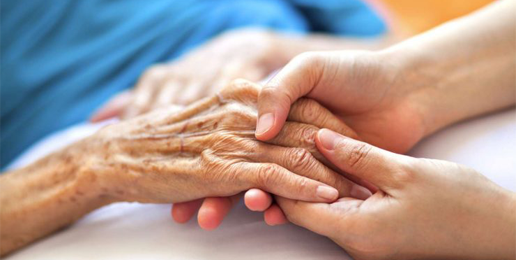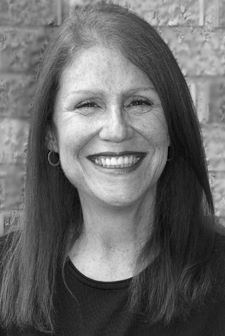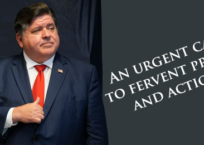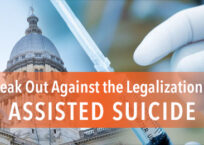
As I have written before, I was almost fired for refusing to increase a morphine drip “until he stops breathing” on a patient who continued to breathe after his ventilator was removed. The doctors mistakenly presumed he had a massive stroke and thus was irreparably brain-damaged. I was told at that time that giving and increasing the morphine even though the patient showed no discomfort was merely “comfort care” that would “prevent pain.” I knew it was euthanasia.
I remembered this terrible incident when I read the April 1, 2019 Federalist magazine article “This Belgian Nurse Watched Euthanasia Turn Pain Management Into A Death Prescription”
Belgium has had legalized euthanasia for many years, including organ donation euthanasia and now even minors and psychiatric patients. But Sophie Druenne, a palliative care nurse, reached her breaking point when she had to call a doctor back to give another lethal injection when the patient didn’t die from the first injection. Sophie caught herself laughing at the absurdity of the situation at first but then realized the horror of the situation and began to question Belgium’s so-called social experiment with euthanasia.
What changed Sophie’s opinion was working in Belgium’s integrated palliative care (IPC) system. Palliative care is “medical aid that treats symptoms of a typically serious disease rather than the disease itself, which sometimes cannot be treated or not easily.” However Belgium’s euthanasia framework now includes integrated palliative care in the framework.
As the article states, palliative care used to be defined by the anti-euthanasia beliefs of its founder, Dame Cicely Saunders, a British nurse who developed holistic care for the dying in the 1940s. Dame Saunders believed that “that a patient’s request for euthanasia represented a failure to adequately care for the patient’s spiritual, emotional, and social needs.”
Although Belgium tried to reconcile Dame Cicely Saunders’ standard with its euthanasia laws, Sophie observed that the guiding intention to relieve suffering changed from “first, do no harm” to “first, relieve suffering.” This allowed euthanasia to become an “easy” solution that could effectively nullify even patient consent.
Sophie finally left Belgium to take a position in Paris at a hospital where terminally ill patients are treated with traditional palliative care
THE SITUATION IN THE US
Recently I was giving a talk on assisted suicide/euthanasia when I noticed that a woman in the audience was visibly upset. After I finished, I went over to her to ask if I said something that upset her. She responded that she was a nurse for 30 years and, when I related the story about the morphine overdose I refused to give, she said that she suddenly realized the truth of what was happening in her hospital. She started to cry while I held her hand. She was devastated just like the Belgian nurse.
Palliative care is a wonderful holistic approach to evaluating the patient’s needs beyond just the physical but it must not include causing death.
Unfortunately, a recent Delaware assisted suicide bill actually tried to define assisted suicide as a palliative care option.
Currently, hospice/palliative care is held up as a good way to combat assisted suicide. However, Compassion and Choices touts that “(a) growing number of national and state medical organizations have endorsed or adopted a neutral position regarding medical aid in dying (physician-assisted suicide) as an end-of-life option for mentally capable, terminally ill adults.”
Barbara Coombs Lee, CEO of Compassion and Choices even issued a 2017 “Call to the Palliative Care Community for a Patient-Centered Response to Medical Aid in Dying (aka physician-assisted suicide)” stating that assisted suicide actually “could improve the image and acceptance of palliative care” by taking a position of “engaged neutrality” that “indicates that it is a professional organization’s obligation to provide its members with the clinical guidelines, information, and tools they need if they choose to support their patients’ requests” for assisted suicide.” (Emphasis added)
Not surprisingly, Compassion and Choices had supported the 2016 “The Palliative Care and Hospice Education and Training Act” (reintroduced this year as H.R. 647) that would provide millions of dollars in grants or contracts to “increase the number of permanent faculty in palliative care at accredited allopathic and osteopathic medical schools, nursing schools, social work schools, and other programs, including physician assistant education programs, to promote education and research in palliative care and hospice, and to support the development of faculty careers in academic palliative medicine.” (Emphasis added)
Fortunately, a provision was added to forbid federal assistance to any health care item or service causing or assisting death such as assisted suicide. Since then, the Compassion and Choices website has been silent on the Act.
CONCLUSION
Over the years, the public has been told that assisted suicide is a humane answer to emotional and physical suffering at the end of life. But if doctors, nurses and their professional organizations come to agree with this, we all will lose the protection of truly ethical healthcare that rejects causing death as a solution. We must be able to trust that our healthcare system will give us the care we need and deserve, especially at the end of our lives.
We cannot become like Belgium.
This article was originally published at NancyValko.com.





















